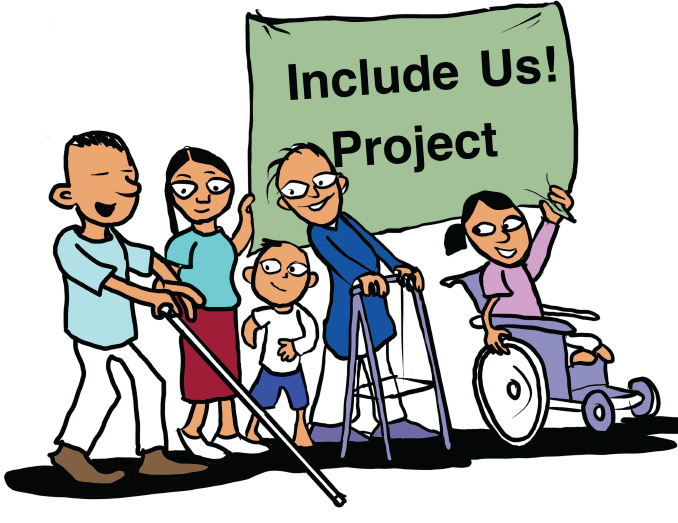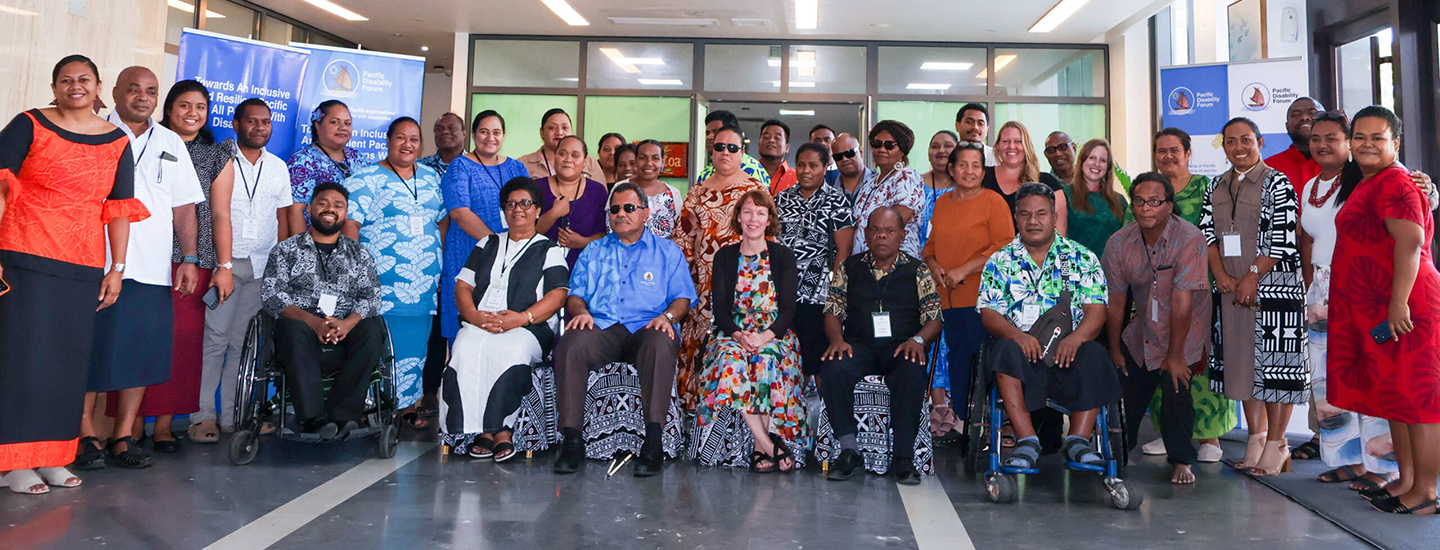CBM Australia provides tailored response through PAMSIMAS program to improve WASH access in Indonesia
Stories | April 21, 2020
The COVID-19 pandemic has put in sharp focus the need for every member of the community to have equitable access to water, sanitation and hygiene facilities to stop the spread of the virus and to save lives especially in low-income countries. Since 2016, CBM Australia has been working in partnership with the Indonesian Government’s Community Water Supply and Sanitation – Penyediaan Air Minum dan Sanitasi Berbasis Masyarakat (PAMSIMAS) program to ensure that the water supply program was inclusive of people with disabilities. This project is also co-funded by the World Bank and Department of Foreign Affairs and Trade (DFAT).
The PAMSIMAS is no small undertaking; Indonesia is home to more than 267 million people, making it the world’s fourth most populous country. A 2010 Census in the country found that just over 4% of all Indonesians – more than 10 million people – live with a form of disability.
Sadly, Indonesia has long suffered from poor access to and quality of water supply and sanitation. Estimates suggest that up to 28 million Indonesians do not have safe access to water and more than 70 million people lack access to improved sanitation facilities. Indonesia also has one of the lowest sewerage coverage levels in Asia, and up to 30% of water distributed by water companies has been contaminated by E.coli or other pathogens.
CBM Australia played a valuable role to ensure that people with disabilities were included in responses by tailoring a specific response to this situation. The project sought to respond to the lack of clean water and sanitation and hygiene facilities through a co-ordinated approach that involved developing training resources, including a handbook on inclusive water, sanitation and hygiene practices, in partnership with two local disabled person’s organisations. Short informative guides were also produced and translated into a number of local languages – more than 700 languages are spoken across the island
The project began engaging with communities in 2017, with 6,060 people with disabilities in 59 different villages identified and supported to address and improve their water and sanitation needs.
The next year, CBM Australia trained PAMSIMAS staff to allow them in turn to train 4,000 village-level water and sanitation facilitators.
The growth of the work means the program is now able to target 15,000 new villages – improving not only the lives of people with disabilities but also their families and broader communities.
In addition to training and education, the PAMSIMAS program has also resulted in improvements to physical infrastructure for people with disabilities.
This included the installation of accessible public water taps – featuring sloping floors and brightly coloured handrails – in close to 2,000 villages and sanitation facilities in 1,100 schools in 2018. These improvements benefit an estimated 12,500 people with disabilities.
Through collaborating with CBM Australia, the PAMSIMAS program has succeeded in improving access to water and sanitation for more than seven million Indonesians. The tangible success of the PAMSIMAS program shows what is possible when CBM Australia and other partners engage cooperatively on inclusive approaches to water, sanitation and hygiene that ensure nobody with a disability is left behind.
https://www.cbm.org.au/stories/cbm-australia-provides-tailored-response-through-pamsimas-program-to-improve-wash-access-in-indonesia
Related Stories

Vision for all: Why access to eye health is a precondition for inclusion
For millions of people in India, particularly those living...

Easy Read your way through our evaluation report
At CBM Australia, we recognise that accessibility is not optional – it is a...

Growing Stronger Together: Supporting OPDs across the Pacific
CBM Australia is proud to partner with Pacific Disability Forum on the Growing Stronger...
